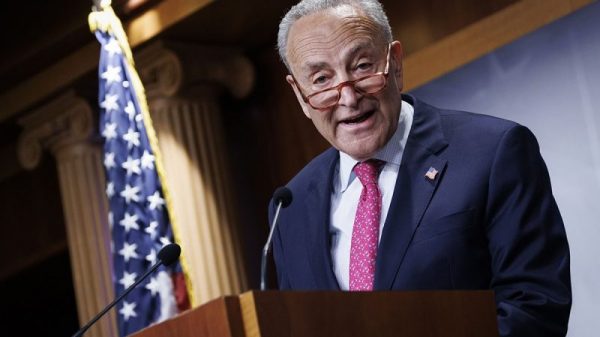
Consumers sharply curtailed their spending in January, indicating a potential weakening in economic growth ahead, according to a Commerce Department report Friday.
Retail sales slipped 0.9% for the month from an upwardly revised 0.7% gain in December, even worse than the Dow Jones estimate for a 0.2% decline. The sales totals are adjusted for seasonality but not inflation for a month, in which prices rose 0.5%.
Excluding autos, prices fell 0.4%, also well off the consensus forecast for a 0.3% increase. A “control” measure that strips out several nonessential categories and figures directly into calculations for gross domestic product fell 0.8% after an upwardly revised increase of 0.8%.
With consumer spending making up about two-thirds of all economic activity in the U.S., the sales numbers indicate a potential weakening in growth for the first quarter.
Receipts at sporting goods, music and book stores tumbled 4.6% on the month, while online outlets reported a 1.9% decline and motor vehicles and parts spending dropped 2.8%. Gas stations along with food and drinking establishments both reported 0.9% increases.
Stock market futures held in slightly negative territory following the release, while Treasury yields lost ground. Traders raised bets that the Federal Reserve could cut interest rates again as soon as June.
“The drop was dramatic, but several mitigating factors show there’s no cause for alarm. Some of it can be chalked up to bad weather, and some to auto sales tanking in January after an unusual surge in December due to fat dealer incentives,” said Robert Frick, corporate economist with Navy Federal Credit Union. “Especially considering December was revised up strongly, the rolling average of consumer spending remains solid,” Frick added.
Inflation remains ahead of the Fed’s 2% goal. The consumer price index posted a 0.5% gain in January and showed a 3% annual inflation rate. However, the producer price index, a proxy for wholesale prices, showed some softening in key pipeline inputs.
In other economic news Friday, the Bureau of Labor Statistics reported that import prices accelerated 0.3% in January, in line with expectations for the largest one-month move since April 2024. On a year-over-year basis, import prices increased 1.9%.
Fuel prices increased 3.2% on the month, also the biggest gain since April 2024. Food, feeds and beverage costs rose 0.2% following a 3% surge in December.
Export prices also increased, rising 1.3%.




























